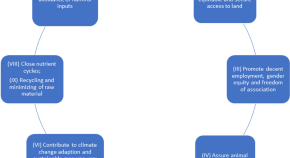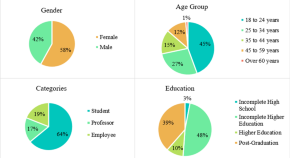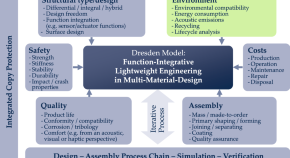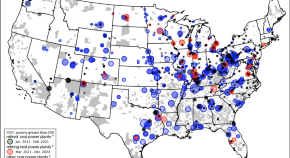
Collection
Transition to Greener, Resilient and Equitable Economy
- Submission status
- Closed
Currently, one of the biggest challenges for global sustainability is the recovery from the COVID-19 pandemic. Besides overcoming the health crisis is now the highest priority, measures for economic, social and environmental recovery are needed. The global economy has been severely affected in the last year, moving into an unprecedented recession, with the potential for deep consequences and historic levels of unemployment and deprivation. We must use the opportunity to recover better and build a sustainable economy, looking for a green economy, more resilient and more equitable for the society, leaving no country behind. It is critical to strengthen economy in all forms, developing science to support strong and sustainable growth, social protection and basic services; protect jobs, small and medium-sized enterprises, and the vulnerable workers in the informal sector, strengthen multilateral and regional responses.
This Topical Collection welcomes theoretical, empirical, case study, and review research contributions representing different methodological approaches, in these main topics:
-Informal economy challenges
-Opportunities for inclusion in formal economy
-Education and skills training
-Resilience workforce
-Strategies to support sector and enterprises impacted by the pandemic
-Supply chain resilience and circularity
-Green economy strategies
-Policies and approaches that prevent environmental degradation and preserve natural resources
-Protecting jobs, small and medium-sized enterprises
-Blue and Green Economy
-Sustainable recovery
-Inovation and infrastructure
The Keywords are: Green economy, post-pandemic recovery, sustainable recovery, resilient economy, circular economy, natural resources, equitable economy, Inovation, Infrastructure, Education.
Editors
-
Luciana Londero Brandli
Prof. Luciana Londero Brandli, University of Passo Fundo, Brazil. Her work focuses on sustainability in higher education, the Agenda 2030, Climate Change, Education for Sustainability etc. She is Deputy Editor of the Encyclopedias of Sustainability in Higher Education and of the UN Sustainable Development Goals. She serves on the editorial board of various journals, supervises a number of master's and doctoral students on engineering, environment and sustainability issues and has in excess of 300 publications. She is the co-investigator in Brazil for the research project Transforming Universities for a Changing Climate.
-
Lucas Veiga Avila
Prof. Lucas Veiga Avila, Federal University of Santa Maria, Brazil. Her work focuses on sustainability in higher education, innovation, the Agenda 2030, environmental management, Climate Change and Education for Sustainability. He is the leader of the Research Group on Innovation and Organizational Sustainability and is active in two graduate programs focused on sustainability. He is part of the editorial board of several journals, supervises a number of master students in the area of management, engineering and environmental accounting, and has more than 200 publications.
-
Janaina Mazutti
Janaina Mazutti, University of Passo Fundo, Brazil. She holds a Master’s degree in Environmental Engineering (2018), in Civil and Environmental Engineering (2021) and she is currently a PhD student at the Graduate Program in Civil and Environmental Engineering, at University of Passo Fundo, Brazil. Her interests include sustainability in higher education, the 2030 Agenda for Sustainable Development and climate change adaptation and mitigation. She is currently a researcher on the international project "Transforming Universities for a Changing Climate".
Articles (4 in this collection)
-

-
Energy efficiency initiatives and the academic community’s behaviour: a Brazilian experience
Authors (first, second and last of 5)
- Bianca Gasparetto Rebelatto
- Amanda Lange Salvia
- Marcos Antonio Leite Frandoloso
- Content type: Research
- Open Access
- Published: 13 October 2022
- Article: 33

-
Neutral lightweight engineering: a holistic approach towards sustainability driven engineering
Authors (first, second and last of 5)
- Robert Kupfer
- Levin Schilling
- Maik Gude
- Content type: Review
- Open Access
- Published: 27 May 2022
- Article: 17

-
Communities in energy transition: exploring best practices and decision support tools to provide equitable outcomes
Authors
- Bethel Tarekegne
- Kamila Kazimierczuk
- Rebecca O’Neil
- Content type: Research
- Open Access
- Published: 08 April 2022
- Article: 12





